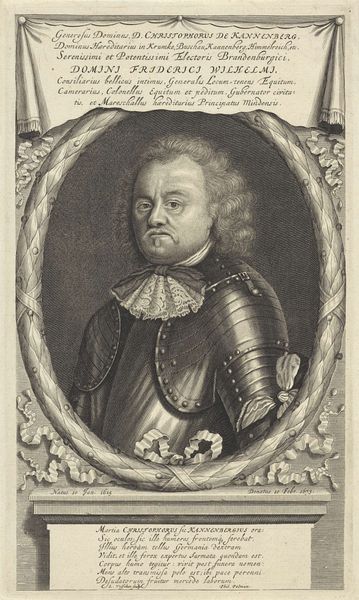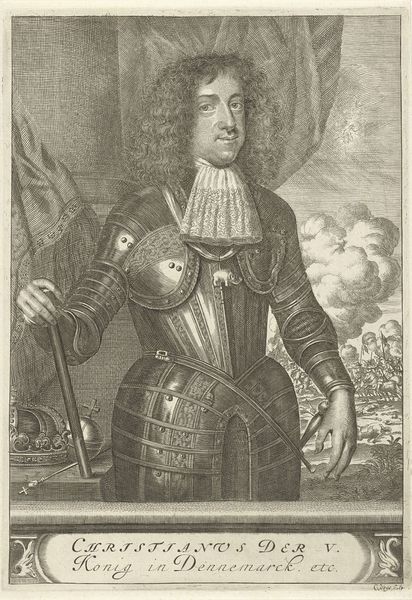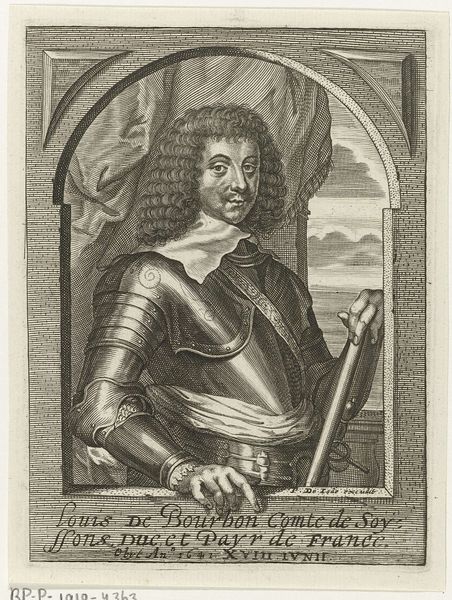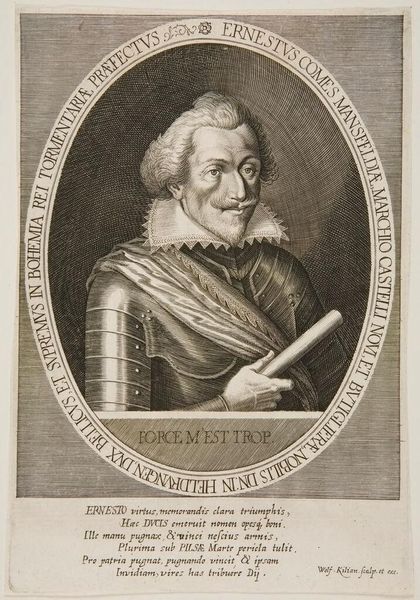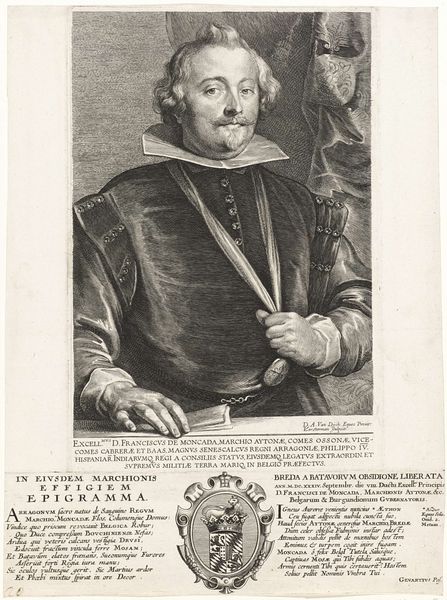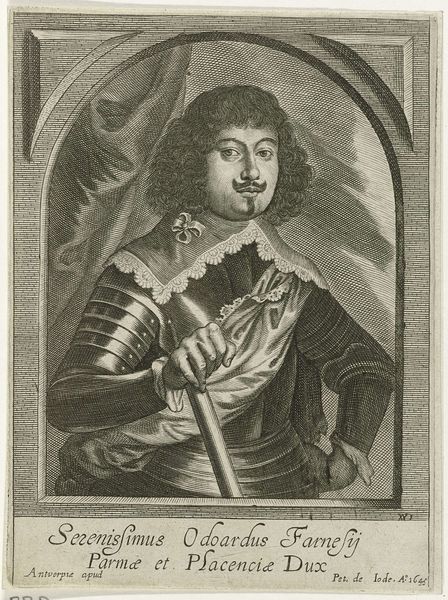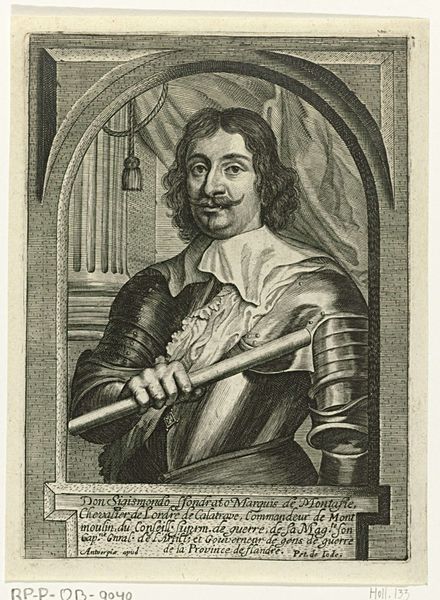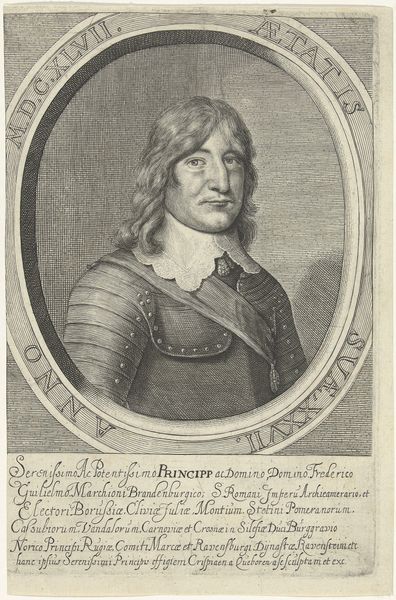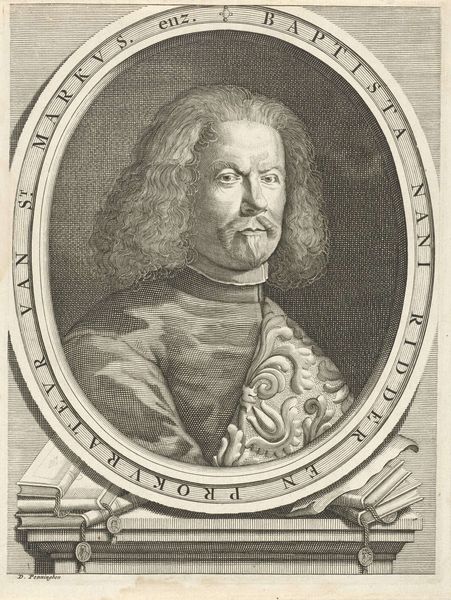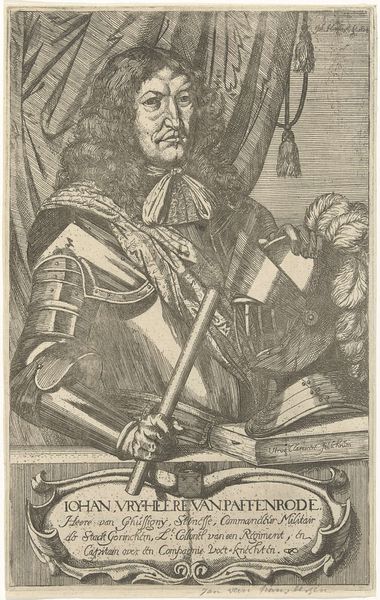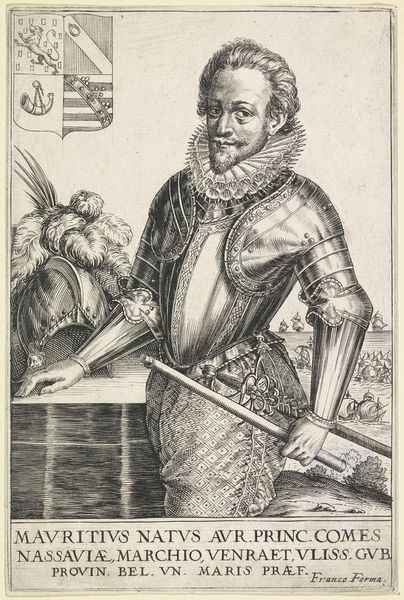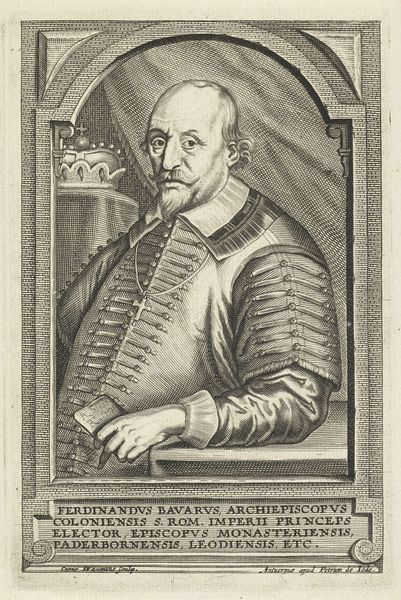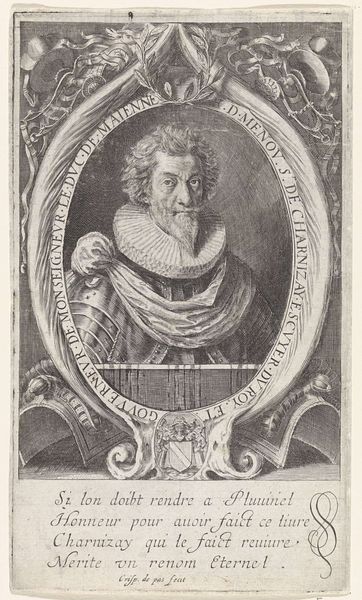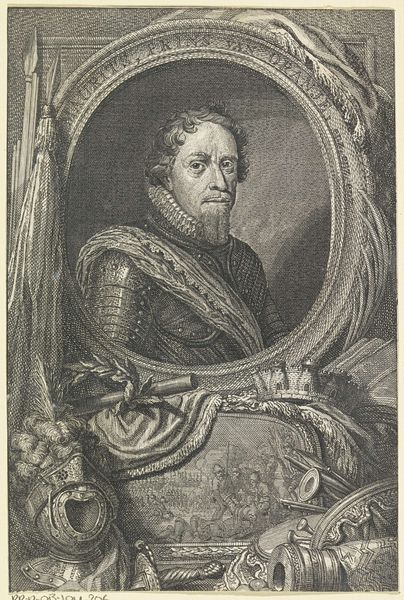
Portret van Lodewijk Hendrik, graaf van Nassau-Dillenburg 1658 - 1702
0:00
0:00
pieterphilippe
Rijksmuseum
metal, engraving
#
portrait
#
baroque
#
metal
#
old engraving style
#
history-painting
#
engraving
Dimensions: height 272 mm, width 182 mm
Copyright: Rijks Museum: Open Domain
This engraving portrays Louis Henry, Count of Nassau-Dillenburg, made by Pieter Philippe in the late 17th century. Notice how Louis holds a baton, a symbol of command and authority, reminiscent of the scepter held by monarchs since antiquity. This motif extends back to the Roman imperium, where the baton, or "scipio," was a mark of consular power. We see this in countless Renaissance paintings depicting classical leaders. Yet, the baton's significance isn't merely political; it is intrinsically linked to the human desire for order. It represents the assertion of control over chaos. The baton has morphed through ages, appearing in religious contexts as a bishop's crosier, symbolizing spiritual leadership, and in the 19th century it was reimagined as a conductor's baton, guiding symphonies. It embodies the cyclical nature of symbols, continually reflecting and reshaping our collective memory. Each era imbues it with new layers of meaning, echoing our enduring quest to shape our world.
Comments
No comments
Be the first to comment and join the conversation on the ultimate creative platform.
